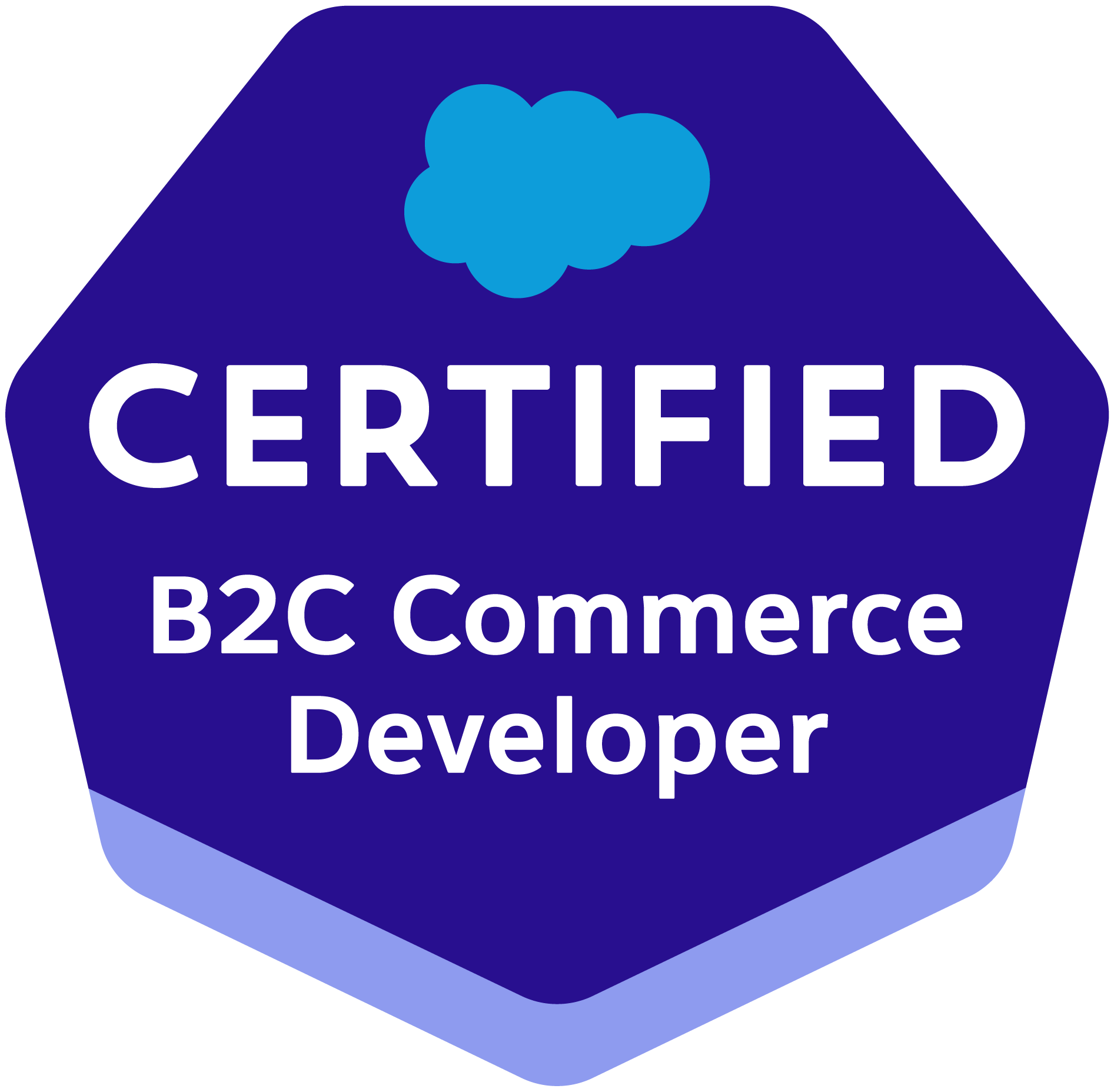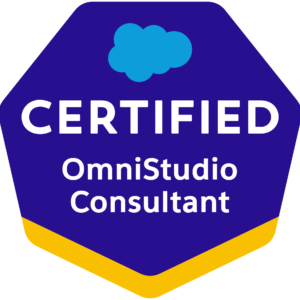35.00$
Salesforce Certification Dumps Winter '25
| Exam Name | Salesforce Certified B2C Commerce Developer |
|---|---|
| Format documents | Pdf and Word |
| Answers to questions | Questions with Answers correct |
| Total Sets | 3 |

About the Salesforce B2C Commerce Developer Credential
The Salesforce B2C Commerce Developer credential is designed for individuals who have experience as developers for Salesforce B2C Commerce Digital. This credential is targeted toward Salesforce customers, partners, and employees who want to demonstrate their knowledge and skills in using B2C Commerce to develop an ecommerce solution, such as:
- Implementing and using Storefront Reference Architecture (SFRA).
- Creating cartridges to add reusable functionality to a site.
- Creating, using, and modifying JavaScript controllers to add business logic to a site.
- Creating reusable code using ISML templates.
- Using Content Slots or Page Designer to improve the appearance and flexibility of a site.
- Using the Forms Framework to control the validation, rendering, and storing of consumer-entered values.
- Using the B2C Commerce APIs to modify business logic in the site.
- Using jobs to create batch processes on system or custom objects.
- Using Open Commerce API (OCAPI) to customize business logic.
- Integrating with third-party systems with B2C Commerce asynchronous and synchronous methods as appropriate for the business need.
- Creating code and configuring sites to ensure sites can scale while continuing to perform optimally.
- Using appropriate tools to troubleshoot issues with code or configuration of a site, as well as optimize site performance.
Audience Description: Salesforce B2C Commerce Developer
The Salesforce Certified B2C Commerce Developer Exam is designed for ecommerce developers who have a minimum of 1 year of developer experience, plus 3-6 months of experience in a B2C Commerce Developer role.
The B2C Commerce Developer candidate has the knowledge, skills, and experience outlined below,
- Describe the architecture of B2C Commerce.
- Describe how the elements of a B2C Commerce site interact, including storefront catalogs, master catalogs, categories, inventory, promotions, products, price books, cart, and checkout.
- Describe the elements contained within SFRA (structure, page types, page generation, search, cart/checkout, templates, CSS), and how they’re impacted when there’s an update to either SFRA or B2C Commerce.
- Design, discover, and build an ecommerce site using Salesforce B2C Commerce.
- Install SFRA sample site and download its code.
- Determine when custom coding or using provided functionality is more appropriate, based on an understanding of the components in SFRA and code according to the SFRA.
- Use Business Manager to manage an ecommerce site, such as code versioning, site development, data/site import and export, global and custom preferences for all sites and organization.
- Install and use an integrated development environment (IDE) to create, modify, and upload site code.
- Use REST-based API to leverage OCAPI, including resources, URLs, methods, and hooks.
- Create code using ISML templates.
- Create custom objects and understand when creating custom objects is appropriate.
- Write B2C Commerce script in script files to write business logic.
- Use appropriate tools to troubleshoot issues with code or configuration of a site as well as optimize site performance.
- Use Node and Git.
- Create and manage jobs using B2C Commerce best practices to import/export data (for example, catalog, orders, inventory, system objects) to merge, delete, update, or replace objects.
Typical job roles of a Salesforce Certified B2C Commerce Developer candidate may include:
- Front-End Developer
- Full Stack Developer
- Software Developer
- Java or JavaScript Programmer
- Web Application Developer
- Support Engineer
Purpose of This Exam Guide
This exam guide is designed to help candidates evaluate their readiness to pass the Salesforce B2C Commerce Developer Exam. This guide provides information about the target audience for the certification exam, recommended training and documentation, and a complete list of exam objectives—all with the intent of helping candidates achieve a passing score. Salesforce highly recommends a combination of on-the-job experience and self-study to maximize the likelihood of passing the exam.


 Updated, Real & Accurate
Updated, Real & Accurate % high pass rate
% high pass rate




